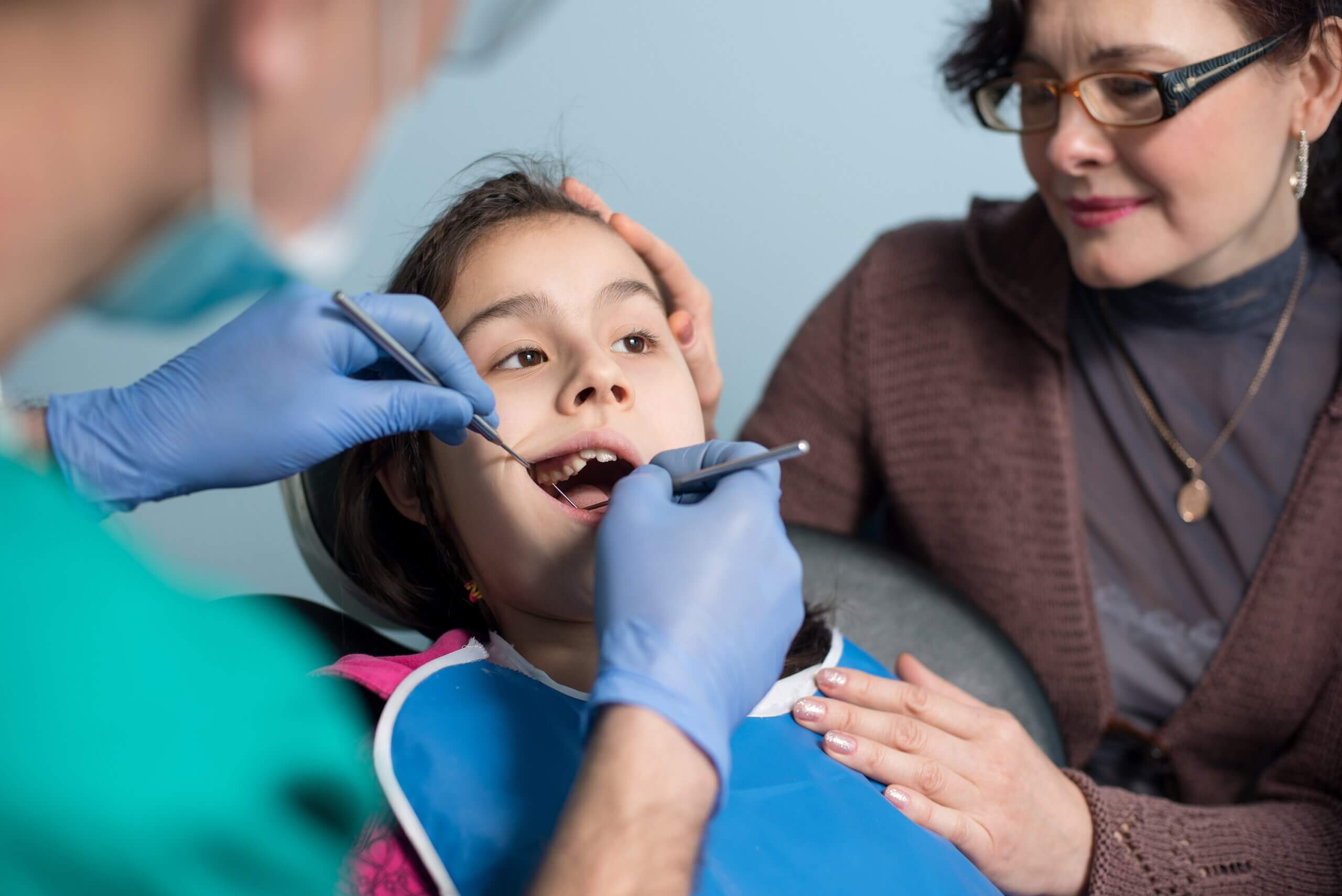School Performance and Oral Health: How Are They Related?

The mouth plays a very important role in general health and in people’s quality of life. Therefore, during childhood, oral health influences several aspects of this stage; among them, school performance. Therefore, not taking proper care of children’s oral health can have serious consequences. Moreover, these complications not only jeopardize the well-being of children but also disrupt their daily lives. Keep reading to learn more about the relationship between school performance and oral health.
Cavities, gingivitis, dental infections, bruxism, and malocclusion can cause pain and other discomforts that affect many areas of a child’s life. On the other hand, lack of rest, mood swings, and absenteeism from classes to solve the problem are factors that can have an impact on children’s learning.
How are school performance and oral health related?
The relationship between oral health and school performance is complex, involving multiple and interconnected variables. It’s the lack of attention to health and the appearance of diseases in the mouth that could have an impact on children’s performance in school. Suffering from chronic diseases can interfere with the ability to succeed in school. Tooth decay is one such condition that occurs frequently during childhood.

Oral problems that impact the classroom
Pain, discomfort, and problems associated with eating and sleeping can decrease attention in the classroom. In addition, the need to visit a dentist to resolve the situation often leads to the child having to miss school to complete treatment.
At the same time, alterations in the functioning of the mouth and the esthetics of the teeth affect psychosocial aspects of the child such as self-esteem, confidence, and social skills. Not feeling good about oneself and relating to others can affect learning ability and cognitive outcomes.
At the same time, poor school performance can negatively influence the incorporation and practice of self-care habits. Paying less attention to oral hygiene and healthy eating impacts a child’s general and oral health and creates an ongoing vicious cycle. In turn, pain and discomfort are’t the only reasons for decreased school performance, but some of these inconveniences could also appear:
- Bite problems
- Dental trauma
- Bruxism
- Gingivitis
What some studies say about it
There’s information from the 1989 National Health Interview Survey (NHIS), which already warned about the relationship between school performance and oral health. According to these data, children and adolescents lose more than 117 thousand hours of school as a consequence of acute dental conditions.
Through research carried out by the Ostrow School of Dentistry, the case of almost 1500 children from primary and secondary schools was analyzed. The aim was to establish the relationship between oral health problems and their impact on school performance. The researchers found that the majority of children suffering from tooth pain were more likely to have low or below-average grades compared to those who didn’t. This work also revealed that patients with tooth decay or other oral problems were those with the lowest grades.
Another study in North Carolina looked at risk factors for poor school performance. Low socioeconomic status, poor parental education, and general poor health were some of the determinants. However, a strong link was also found between poor oral health and poor school performance. Therefore, children considered to have oral problems were 40% more likely to have difficulties in school.

Taking care of oral health to prevent school performance problems
Taking care of children’s mouths isn’t only good for their well-being but also a beneficial way to improve their educational experience. Children’s good oral health could prevent the school performance problems we’ve told you about here. Therefore, you should pay attention to some simple care measures that will allow your little one to have a healthy mouth:
- Start with oral hygiene from an early age. For this, you’ll have to take care of their tooth brushing with fluoride toothpastes and, later, also the use of dental floss.
- Diet is another aspect to take care of. Avoiding sweets, soft drinks, candy, and ultra-processed foods is a way to educate them about healthy eating and at the same time take care of their health.
- Visiting the dentist is fundamental. From the first year of life, the dentist should be seen at least once every 6 months. With regular check-ups and interventions, the dentist will help prevent problems in the mouth. If they develop, they should be solved before they produce more complex and annoying complications.
A healthy mouth for everyday life
The oral cavity allows us to chew, eat, laugh, and pronounce words properly. When there are oral health problems, these functions are affected and your child’s quality of life suffers as a result.
Taking care of your child’s mouth not only allows them to perform their oral functions normally. Proper oral health care prevents discomfort, embarrassment, feelings of shame, teasing, and missed classes that can diminish school performance.
All cited sources were thoroughly reviewed by our team to ensure their quality, reliability, currency, and validity. The bibliography of this article was considered reliable and of academic or scientific accuracy.
- Guarnizo-Herreño, C. C., Lyu, W., & Wehby, G. L. (2019). Children’s oral health and academic performance: evidence of a persisting relationship over the last decade in the United States. The Journal of pediatrics, 209, 183-189.
- Nithila, A., Bourgeois, D., Barmes, D. E., & Murtomaa, H. (1998). Banco Mundial de Datos sobre Salud Bucodental de la OMS, 1986-1996: panorámica de las encuestas de salud bucodental a los 12 años de edad. Revista Panamericana de Salud Pública, 4(6).
- Gift, H. C., Reisine, S. T., & Larach, D. C. (1992). The social impact of dental problems and visits. American journal of public health, 82(12), 1663-1668.
- Seirawan, H., Faust, S., & Mulligan, R. (2012). The impact of oral health on the academic performance of disadvantaged children. American journal of public health, 102(9), 1729-1734.
- Jackson, S. L., Vann Jr, W. F., Kotch, J. B., Pahel, B. T., & Lee, J. Y. (2011). Impact of poor oral health on children’s school attendance and performance. American journal of public health, 101(10), 1900-1906.
- Flores Naula, K. D. L. N. (2020). Relación entre CPOD y la Limitación para socializar en escolares de 12 años de la parroquia Huayna-Cápac Cuenca-Ecuador 2016.
- Ruff, R. R., Senthi, S., Susser, S. R., & Tsutsui, A. (2019). Oral health, academic performance, and school absenteeism in children and adolescents: A systematic review and meta-analysis. The Journal of the American Dental Association, 150(2), 111-121.
- Paula, J. S. D., & Mialhe, F. L. (2013). Impact of oral health conditions on school performance and lost school days by children and adolescents: what are the actual pieces of evidence?. Brazilian Journal of Oral Sciences, 12, 189-198.
- Rebelo, M. A. B., Rebelo Vieira, J. M., Pereira, J. V., Quadros, L. N., & Vettore, M. V. (2019). Does oral health influence school performance and school attendance? A systematic review and meta‐analysis. International journal of paediatric dentistry, 29(2), 138-148.
